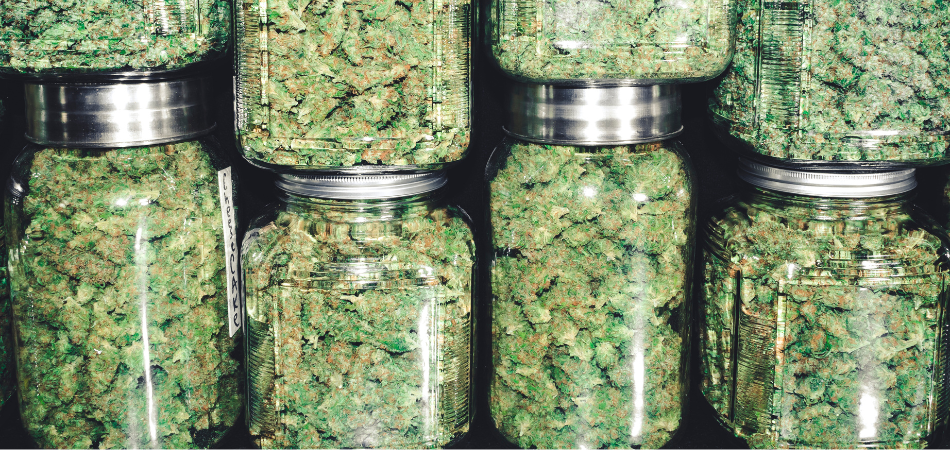Last Updated:
February 28th, 2025
Cannabis has come to find itself in quite a unique position. As an illicit drug, we might anticipate that people would think of cannabis as they do other illegal substances, as something that is dangerous and should be avoided. But even compared to drugs in the same drug classification (class B in the UK), cannabis is seen as relatively harmful. In relation to substances such as amphetamines and barbiturates, cannabis is seen as less risky and safer to engage with. This has led to a boom in recreational cannabis use, making marijuana the most used drug in England and Wales continually since 1995.
But why is this the case? Why is cannabis so appealing to so many different people? What has led to its almost cult status in the UK? What are the more positive aspects of cannabis, and what does using the drug feel like? On the other hand, how far can we trust the claim that cannabis is ‘harmless?’ Is it possible to develop a cannabis addiction? How can the drug affect both the body and brain and what key facts should users of marijuana know?
The cannabis controversy
For some time now, the use of cannabis in certain circles has become somewhat ameliorated. For some groups of people, smoking cannabis does not seem inherently serious or risky and may be seen as almost equivalent to drinking alcohol or even smoking cigarettes. Some individuals suggest that it is ‘impossible’ to become addicted to cannabis, which can make the drug seem lower-risk and, therefore, more desirable to many users. Some people also suggest that the benefits of using marijuana can outweigh the negatives, citing the drug’s relaxant properties not only as a benefit of recreational use but also as a driving force behind the utilisation of cannabis products in specific medical contexts. However, research suggests that ‘marijuana dependence as experienced in clinical population appears very similar to other substance dependence disorders although it is likely to be less severe.’
Research shared by the American Centers for Disease Control and Prevention (CDC) indicates that around 10% of cannabis users will develop a marijuana addiction. This may seem like a much lower percentage than those linked to other substances, such as cocaine and heroin, for instance. This indicates that cannabis has a lower likelihood of abuse potential. But that does not mean that developing an addiction to it is impossible.
There have been calls by people in both the UK and certain parts of the US to ‘decriminalise’ cannabis; that is, to reduce or remove the legal repercussions of the production, sale and use of the drug. However, in the UK, cannabis remains a Class B drug, meaning it is considered to have a medium level of risk. So, in this case, who is right?
The answer is that cannabis can be viewed from two perspectives:
- as a psychoactive drug that carries risk of addiction, and both physical and psychological side effects
- as a form of medication or recreational aid that can support the management of varying mental and physical health symptoms
Cannabis: negative effects
Cannabis is a psychoactive drug. It can fit into the categories of three types of drug:
- depressant
- stimulant
- hallucinogen
This means that it can act on the brain in several ways; it can inhibit specific neuronal function (depressant) whilst also exciting other neuronal functions (stimulant). It can also alter perception, leading to its hallucinogenic qualities.
But what negative effects can this have?
Some people experience the following negative psychological symptoms after long-term use of cannabis:
- abstract thinking
- disorientation
- disruption to memory
- paranoia
- anxiety
- panic attacks
- depression
- hallucinations (most commonly auditory and visual)
- increased risk of psychosis
- increased risk of suicidal ideation
- cognitive impairment
- reduction in brain matter
The following physical symptoms have also been recorded:
- issues with lungs
- worsening of asthma
- coughing
- higher risk of developing lung cancer
- high blood pressure and heart rate
- palpitations
- risk of cardiovascular complications
- fertility issues in men
- fertility issues in women
- prenatal cannabis exposure
These symptoms are thought to be experienced more frequently in individuals who use cannabis at a younger age. Neuroimaging techniques have investigated the effects of cannabis on the adolescent brain and have suggested that the drug can lead to ‘neurocognitive performance, macrostructural and microstructural brain development, and alterations in brain functioning.’
Cannabis: Positive effects
Despite the aforementioned negative effects of cannabis, there are many people across the world who argue that for certain individuals, cannabis can be life-changing in a much more positive way. This argument usually focuses on the distinction between the two key compounds in cannabis, THC and CBD. THC (tetrahydrocannabinol) is the compound responsible for most of the hallucinogenic effects that are so classic of a ‘weed’ high. CBD is short for cannabidiol. This compound is thought to be non-psychoactive.
In actual fact, many people believe that CBD can have a range of health benefits and advantages. This has led to the use of cannabis for its CBD properties, or, the extraction of CBD from cannabis in order to create products that can be used without the psychoactive effects of THC.
But what are these proposed benefits?
Some people experience the following positive psychological symptoms after long-term use of cannabis:
- reduction in levels of anxiety
- a feeling of peace, or being ‘mellow’
- relaxation
- improvement in sleep management
- improvement in ability to socialise
- increase in confidence
- management of trauma
The following positive physical symptoms are often frequently cited:
- reduction in pain
- reduction in tremors and shaking in conditions such as Parkinson’s
- reduction in seizures
- reduction in inflammation
- management of cancer symptoms
- management of anorexia and other conditions linked to extreme weight loss
- management of irritable bowel syndrome
- management of epilepsy
- management of glaucoma
Cannabis alleviates difficult symptoms for a range of people. This can lead to an increase in personal wellbeing and a general improvement in health. For some individuals, this can lead to a new lease of life or renewed confidence.
Disclaimer
It is important to note that whilst some drugs may have positive benefits as well as negative, there is no safe level of drug use. It is impossible to identify what level of cannabis use ‘is safe,’ and therefore, it is not advised that you engage with cannabis or any cannabis-related products (including CBD) to manage a medical condition without first consulting a licensed medical practitioner. It is important to remember that not all CBD products are licensed and, therefore, cannot always be assumed to be safe and free from psychoactive compounds.
Cannabis rehab
There are many individuals who develop some kind of marijuana use disorder. If you find that your use of weed is spiralling out of hand, then you may benefit from support at a cannabis rehab centre. Drug use is never black or white. Cannabis can appear relatively safe for some, whilst others may find themselves falling into the trap of addiction very quickly. If you are struggling with your use of marijuana, then it may be time to seek help at a specialist cannabis rehab clinic. You can contact UKAT for free and confidential advice.





